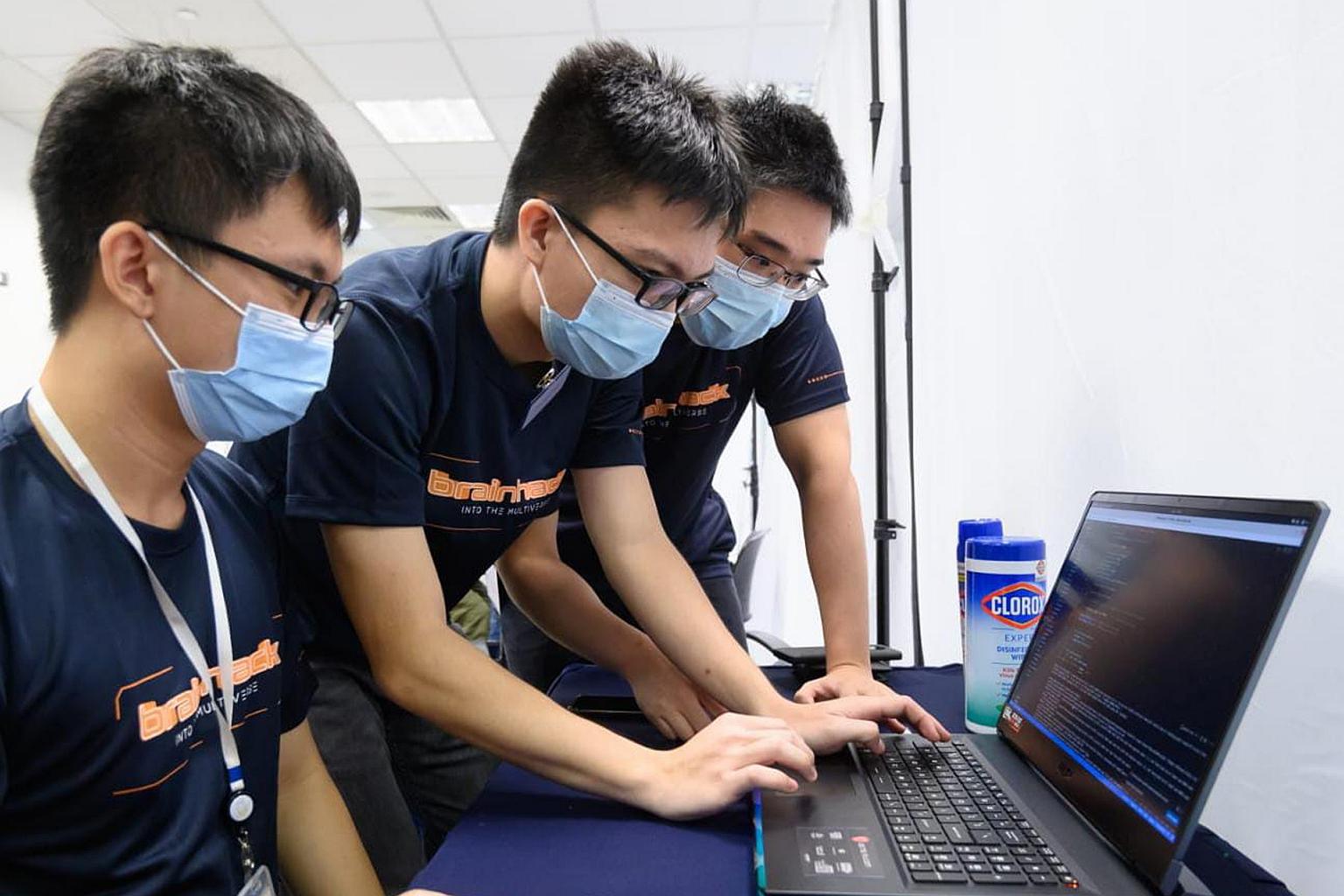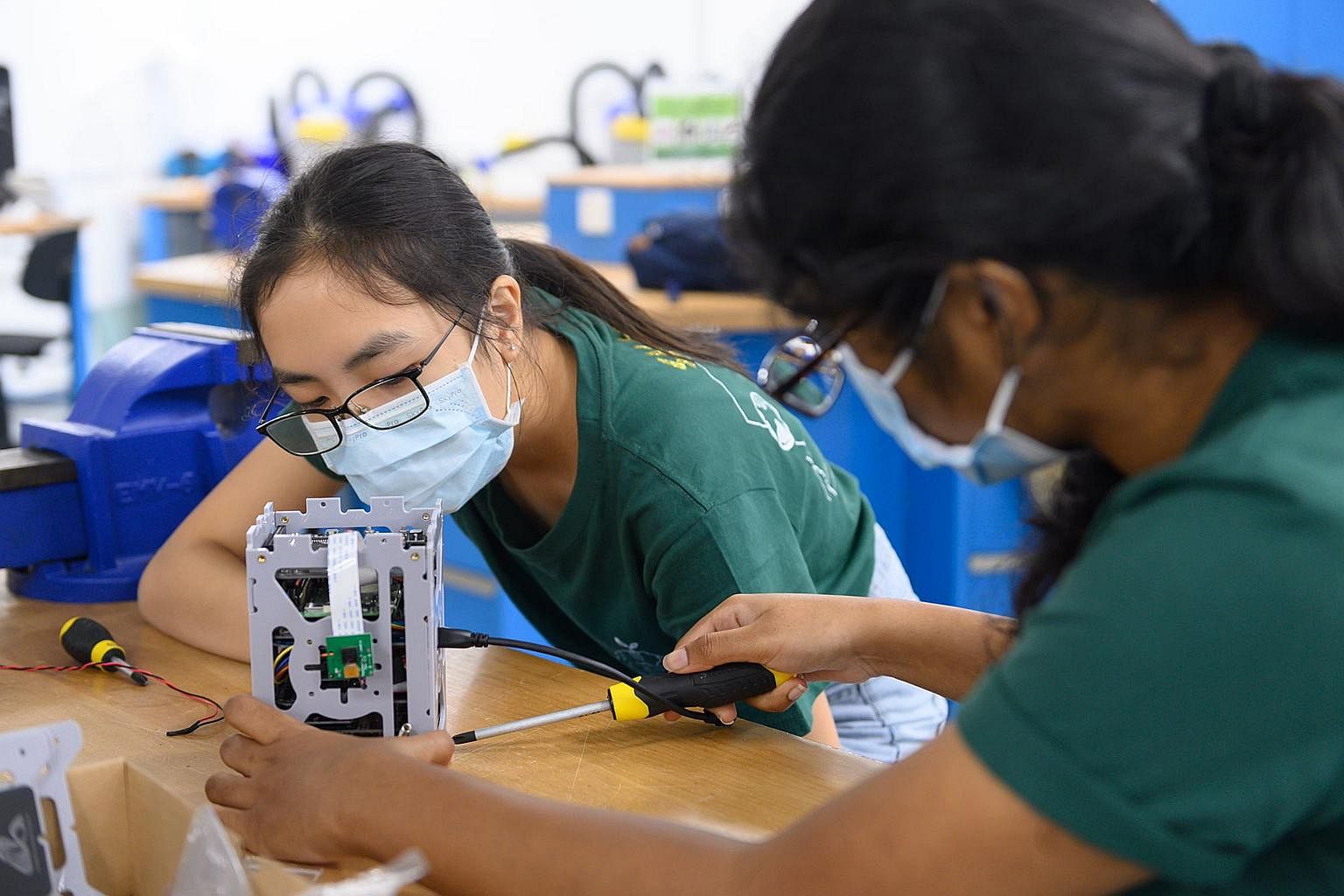Digital tech gets boost in interest as more students attend annual BrainHack
Sign up now: Get ST's newsletters delivered to your inbox

Participants hovering around a laptop during one of the in-person activities at Today I Learned – AI Camp organised as part of BrainHack.
PHOTO: DSTA
SINGAPORE - Ms Rebecca Tan was a third-year computing student at the National University of Singapore when she took part in a youth cyber security learning camp in 2019.
At the Cyber Defenders Discovery Camp (CDDC) organised by the Defence Science and Technology Agency (DSTA), she delved deep into cyber security topics such as cryptography, network security and Web security.
The camp culminated in a cyber security capture-the-flag (CTF) competition, where teams pitted their skills and techniques against each other.
The experience, along with an internship stint at DSTA in the same year, piqued her interest in the defence technology industry.
Ms Tan, 25, is now a defence engineer at DSTA's Cybersecurity Programme Centre.
She said: "On hindsight, the camp was a valuable experience. I acquired a lot of skills and knowledge through the hands-on activities."
The CDDC is among a series of workshops, camps and hackathons related to digital technologies that returned this year over the course of the last month as part of the fourth edition of BrainHack, DSTA's annual learning fest.
Participation in BrainHack has been growing rapidly, with over 3,000 students participating this year compared with 1,500 students when it started in 2019.
The activities are open to students of various levels – from secondary school all the way to university.
No prerequisite skills are required for students to join the activities as training is provided.
Ms Tan was one of several former participants who credited BrainHack as a starting point for wishing to join the defence technology community.
Mr Nicholas Neo, a 2020 alumnus of BrainHack, said the experience sparked his interest in artificial intelligence (AI).
He said: "For AI, you don't learn a lot just from theory, you must put the theory to use by building models to really learn."
His interest has carried through.

The 25-year-old, who recently graduated from Nanyang Technological University, joined DSTA's Digital Hub, which scouts and discovers opportunities in emerging fields, such as AI, for application in the defence domain.
Mr Cheong Ji Yiu, 19, another 2020 BrainHack alumnus, said he first learnt about DSTA at the event.
The Singapore Polytechnic student received a DSTA polytechnic scholarship last year and is currently an intern at the Cybersecurity Programme Centre.
He said: "As we strive to become a smart nation, a robust cyber defence is something we need to have. I think it is quite a noble job to help defend the country against cyber attacks."
In his opening address for BrainHack this year, Senior Minister of State for Defence Heng Chee How said that issues such as the use of misinformation in the Russia-Ukraine conflict show how digital technology will have an increasingly important role in national defence and security.
According to reports, users saw false and misleading content about the war in Ukraine within 40 minutes of signing up to the TikTok video app, in what has been dubbed the world's "first TikTok war".
Mr Heng delivered his speech on a virtual platform where a number of BrainHack activities took place this year.


